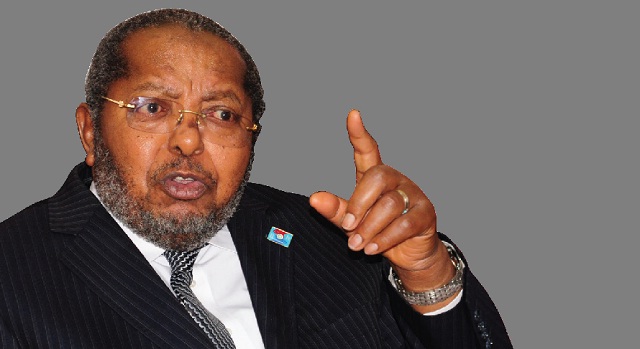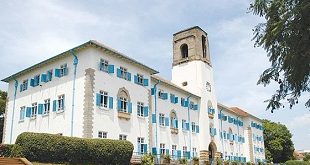
Under the spotlight: the law and big money
Kampala, Uganda | HAGGAI MATSIKO | After ending its public hearings into Bank of Uganda’s closure of seven commercial banks, attention is shifting to the recommendations the Parliamentary Committee on Commissions, Statutory Authorities, and State Enterprises (COSASE), is set to make.
It has emerged over the three-month long parliamentary COSASE probe, that the central bank failed to follow the law and procedure and made many mistakes during the closure and liquidation of the banks.
Abdul Katuntu, the chairman of COSASE captured the sentiment precisely during one of the sessions.
“You cannot have a central bank that conducts business in this manner,” he said as another BoU failure was exposed.
Katuntu was reacting to revelations by shareholders and directors of Crane Bank, which BoU took over in 2016 and controversially sold to dfcu bank in 2017.
The committee had just heard that BoU sold Crane Bank to dfcu Bank the bank through a phone call. And it was not the first. BoU had sold National Bank of Commerce and Global Trust Bank in similar fashion.
The defunct banks include: Teffe, Greenland Bank; formerly owned by the late Sulaiman Kigundu, National Bank of Commerce (NBC), formerly owned by tycoon Amos Nzeyi, former Prime Minister, Amama Mbabazi, among others, International Bank, formerly owned by the Emma Kato family, Cooperative Bank, Global Trust Bank, and Crane Bank.
Shareholders of these banks appear to have won the sympathy of whoever heard their revelations.
While reacting to the same on Feb.8, even Finance Minister Matia Kasaijja who was appearing with the BoU board before the committee had no kind words.
“It is very unfortunate that there is a patient who is still breathing and you as a doctor give him poison to finish him off,” Kasaija said while commenting on the way the central bank closed some of the banks.
It has also become clear that the central bank risks paying heavily for these mistakes. But, The Independent can report, opinion on the matter among decision makers at BoU, Ministry of Finance, and State House is sharply divided.
One camp argues that BoU can legally justify why it closed each and every one of these banks. The other camp says BoU also broke the law and should be punished.
A senior official at BOU told The Independent that the central bank faces a risk of coughing up a staggering Shs5 trillion as a result of this mess. “We face a serious legal liability,” the official said.
This bill is a rough estimate of what BoU could pay in compensation required by the former shareholders of the seven banks, interest rate on this money and resultant legal fees.
To get a sense of the bill, for instance, Crane Bank shareholders are demanding $23 million (Approx. Shs85 billion) and the bad book worth Shs575 billion.
National Bank of Commerce is demanding Shs295 billion, Global Trust Bank Shs315.7 billion, and Greenland Bank Shs38 billion, another US$ 10.45 million (Approx. Shs 37 billion) and USD 11 million (Approx. Shs40 billion).
The shareholders of these banks are making these demands through COSASE. But, as a parliamentary committee, COSASE can only make recommendations to the executive, which can ignore them. Then the shareholders could go to court.
The government would opt to defend its position or arbitration.
Should BoU and, therefore, the government be compelled to pay the Shs5 trillion to the shareholders under whatever conditions, it could have major implications on the economy.
But the other camp says there is nothing for BoU to fear.
According to them, the law governing supervision of banks, the Financial Institutions Act (FIA) 2004, gives BoU very broad latitude to close a bank under many circumstances.
Two broad grounds that shield BoU are increasingly cited here: One says BoU can close a bank if the bank “is in the opinion of the Central Bank conducting business in a manner detrimental to the interests of depositors”.
The other is when the bank “has in the view of the Central Bank contravened this Act or any other financial law in a manner which is serious or persistent”.
For all the Banks BoU closed, those invoking this shield say, it can provide evidence for these grounds.
Crane Bank, for instance, faced under capitalisation problems, its shareholders allegedly took insider loans and severally contravened the FIA. Both NBC and Global Trust Bank faced capitalisation issues that threatened depositors’ savings, some insiders say.
Some inside BoU feel that this is the most important issue; that BoU caught these banks breaking the law. As a result, they argue, BoU acted rightly in closing them. The most important thing, they argue, is that BoU protected depositors’ savings and protected the entire financial sector from contagion.
 The Independent Uganda: You get the Truth we Pay the Price
The Independent Uganda: You get the Truth we Pay the Price




Out of interest is central banks problem closing the banks or is it selling them improperly and if it is the latter is the 5tn pay up fair or not?